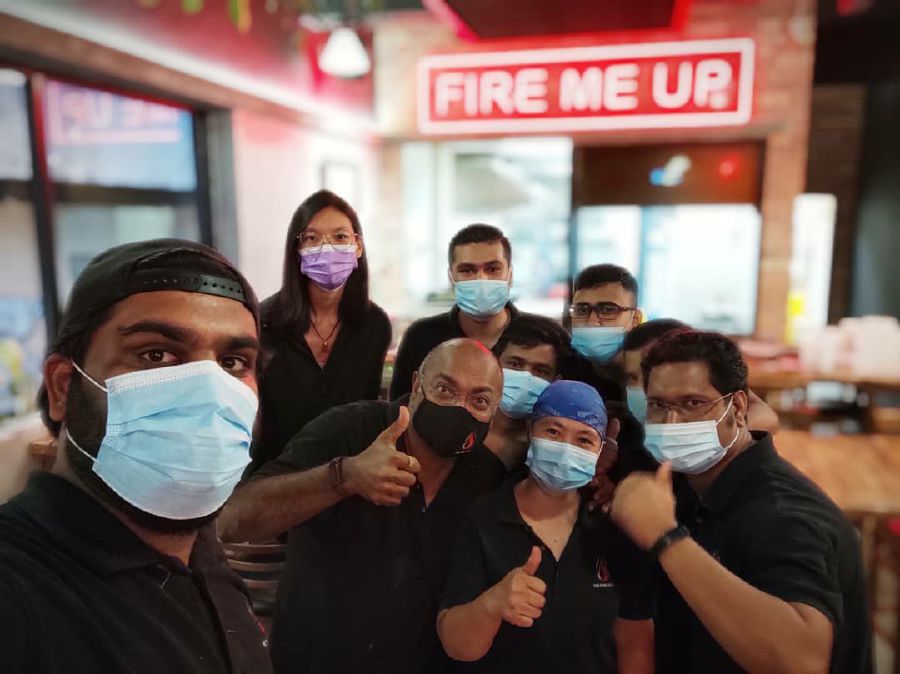
CONSTITUTIONALLY, Malaysia is in a state of emergency and most of the country went back into some form of movement controls. Everyone is concerned about their health and safety.
But livelihoods and businesses are severely affected.
Just as the nation was on the rebound from a challenging year, and commerce was on the uptick, everything has been slammed shut again.
For those who are gainfully employed, it's the familiar case of working from home; for the self-employed, there is a palpable worry about the next paycheck; and for many small business owners, the situation is bordering on being disastrous.
Health experts say that we need to flatten the curve, and quell the spread of this dastardly virus.
Notwithstanding the confusing science, procedural vagueness, doomsday naysayers, and conspiracy theories, the vast majority of citizens have accepted the reality of the situation, albeit begrudgingly.
But this time around, there is one major difference. You should have worked out, from last years' experience, how you can manage things better for yourself, your family and for your work life.
If you had spent time, energy, and effort on personal reflection after the last round of shutdowns, it would have allowed you to make sense of all that was noteworthy.
Academics and medical researchers, have for decades been discovering the potential benefits of students and professionals reflecting on their actions, and on effective ways to get people to engage in reflection.
But reflection, as a process, is not limited to those people only in the medical or academic fields. It's an essential component for anyone hoping to make the most of their experiences, regardless of their work.
If you had reflected on things after the global uncertainties caused by this pandemic became clear, it would have certainly improved your understanding; transformed your perspective; and perhaps even helped you re-appreciate your job.
What does reflection do for you?
It improves contextual understanding. In the current world climate, if you juxtapose your troubles against the most vulnerable in the community, it will give a better viewpoint.
Your business or career may be going through tremendous pressure, but when you are cognizant of people who may struggle to even to put food on the dining table, it gives you a better perspective.
Reflection also builds empathy. Your ability to sense other people's emotions will help you in all parts of your life, right now. This, together with the capacity to imagine what someone else might be thinking or feeling, becomes vital. If you can do this, you can be valuable to yourself by adding value to others.
As we brace ourselves for more socio-economic hardships to come, your personal worth, and even the worth of your enterprise will depend on your ability to be relevant, and be genuinely useful.
When you reflect on what transpired last year with the fallout from the pandemic, you deepen your appreciation of what's happening around you now.
Everyone is working in an ever-changing environment. And, from experience you should be ready for frequent confusion, constant vagaries, and fluid work modalities.
When you understand how things might transpire based on your past experiences, you can efficiently recognise current problems, design useful solutions for yourself, and communicate your ideas, better.
I have realised that you cannot grow from your experiences if you do not truly comprehend them, and make changes based on what you have learned. You cannot predict outcomes or solve problems if you don't have an acute grasp of your past.
And this only comes with reflection.
Remember, you need to reflect on both your successes and failures. Reflection is not only about dwelling on the negative things. Positive experiences also teach you what works well, in specific situations.
For me, I have reflected that to continue to survive, and perhaps even grow in the current climate, I must intensify my efforts to have an entrepreneurial mindset.
I have understood that my work, and businesses have to focus on creating loyalty, trust, and customer value by going beyond expectations. I have to care about the experiences that my customers have, and work continuously to improve them.
If you lead a team, you need to inspire your people to develop an entrepreneurial mindset, too. And no matter what you work as, or whatever business you do, that vision has to be customer-centric.
For instance, right now at my restaurant, The Fire Grill, we work without a profit orientation.
At the onset of the current movement control order, I decided that 20% of our revenue, which is ultimately the profit margin for many businesses in the food and beverage sector, will be donated. We are providing meals, through Persatuan OKU Sentral and Kechara Soup Kitchen, to those who need it most.
Reflection has led me to understand that it is a difficult time for everyone. But what the world needs is gentleness, kindness, and solidarity. We need to show that we care for the most vulnerable in our society.
What have you reflected on?
Shankar R. Santhiram is managing consultant and executive leadership coach at EQTD Consulting. He is also the author of the national bestseller "So, You Want To Get Promoted?"
The views expressed in this article are the author's own and do not necessarily reflect those of the New Straits Times
